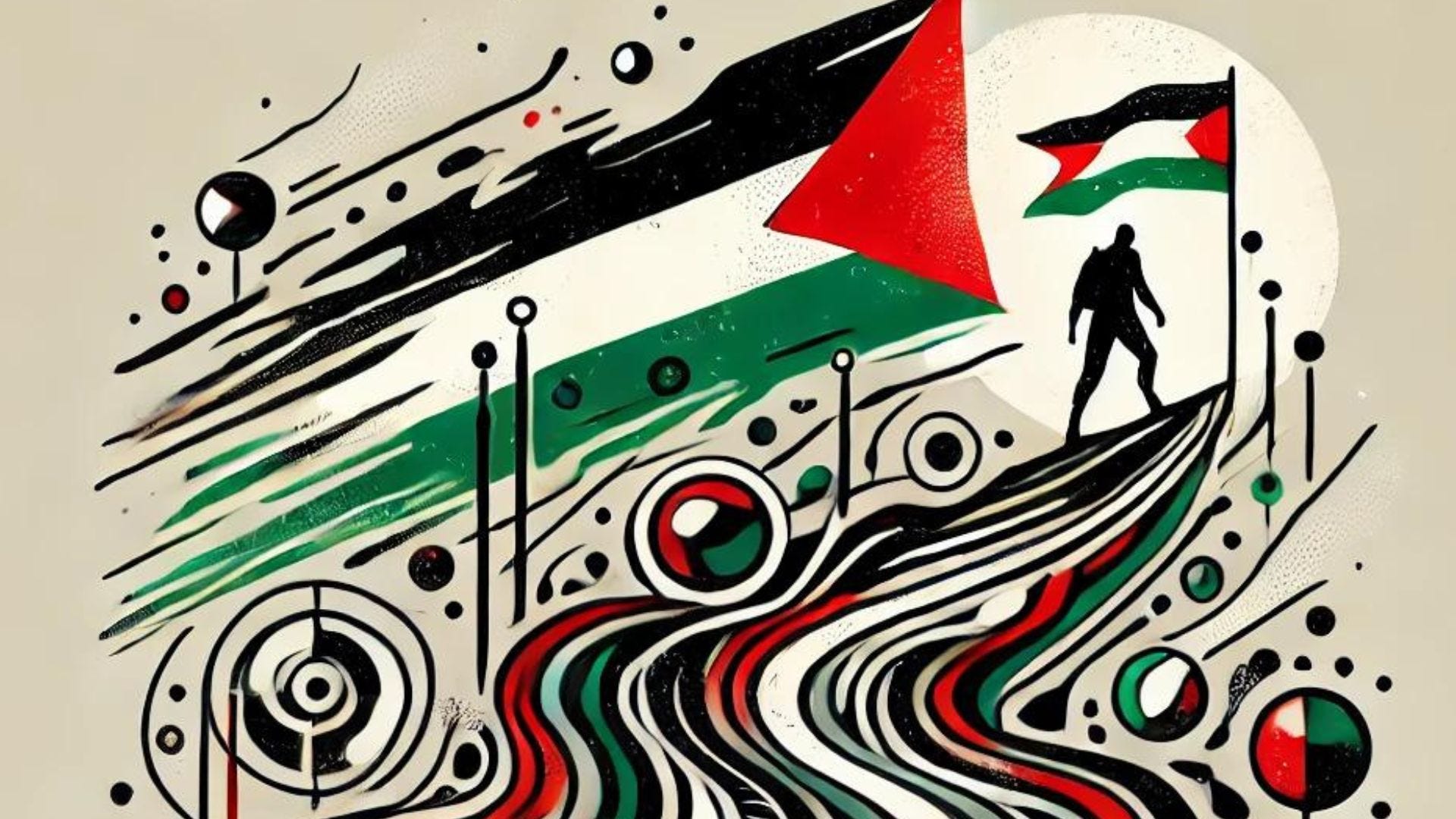The protracted Israeli-Palestinian conflict has once again brought global attention to the entrenched struggles in the occupied territories. As violence escalates, international discourse often gravitates toward immediate solutions like ceasefires or humanitarian aid. However, as recent discussions—including a poignant piece by Al Jazeera—highlight, the conversation needs to shift toward a more profound understanding of the Palestinian struggle as a decolonization effort, rather than just a temporary cessation of hostilities.
Solidarity with Palestine must go beyond advocating for ceasefires or condemning isolated incidents of violence. It requires a commitment to the broader and more challenging goal of decolonization—a process that involves dismantling the structures of occupation, apartheid, and settler colonialism that have oppressed Palestinians for decades.
Limits of Ceasefire Advocacy
Ceasefires, while crucial in halting the immediate loss of life, tend to offer only a temporary respite in the broader context of the Israeli-Palestinian conflict. Advocating for a ceasefire without addressing the underlying issues is akin to putting a band-aid on a deep, festering wound. The focus on ceasefires can inadvertently sideline the fundamental issues of occupation, displacement, and systemic inequality that lie at the heart of the conflict. This approach, while well-intentioned, risks perpetuating the status quo, wherein the cycle of violence repeats itself with alarming regularity.
The call for ceasefires often serves the interests of international actors more than it does the needs of the Palestinian people. It provides a veneer of action while allowing the structures of occupation and apartheid to remain unchallenged. Therefore, the discourse needs to evolve from temporary fixes to addressing the root causes that fuel this conflict.
Decolonization Lens: A Historical and Moral Imperative
Understanding the Palestinian struggle through the lens of decolonization offers a more comprehensive framework for solidarity. Decolonization, in this context, refers not just to the end of Israeli military occupation but to the dismantling of all forms of domination, control, and systematic dispossession that have defined the Palestinian experience since the early 20th century.
The concept of decolonization has deep historical roots, particularly in the context of post-World War II liberation movements across Asia, Africa, and Latin America. Like these movements, the Palestinian struggle is about reclaiming land, rights, and sovereignty. However, unlike many of these historical cases, the Palestinian decolonization process remains incomplete, continually obstructed by international political dynamics, and an enduring Israeli settler-colonial project.
According to a 2023 report by the United Nations, the situation in the occupied Palestinian territories exemplifies the characteristics of a settler-colonial regime, where the occupying power seeks not just to control but to replace the indigenous population. The expansion of Israeli settlements, the demolition of Palestinian homes, and the annexation of land are not merely security measures—they are part of a broader strategy to alter the demographic and political landscape permanently.
Role of International Solidarity
For international solidarity to be genuinely effective, it must move beyond the rhetoric of ceasefires and humanitarian aid to actively support the Palestinian decolonization process. This requires recognizing and opposing all forms of Israeli apartheid and occupation. As suggested in the Al Jazeera article, this means embracing a decolonization framework that challenges the status quo and supports Palestinian self-determination, justice, and equality.
The global movement against apartheid in South Africa during the 1980s provides a compelling parallel. The international community, through boycotts, divestments, and sanctions (BDS), played a crucial role in dismantling the apartheid regime. Similarly, the BDS movement against Israel, initiated by Palestinian civil society in 2005, calls for similar actions to pressure Israel to comply with international law. The BDS movement is grounded in the principles of decolonization, seeking to end the occupation, dismantle the apartheid system, and uphold the right of return for Palestinian refugees.
However, the BDS movement has faced significant pushback, particularly in the United States and Europe, where legislation has been introduced to penalize entities that participate in it. Despite these challenges, the movement remains a critical tool in the global solidarity efforts with Palestine, aligning with the broader decolonization narrative that views the conflict not merely as a territorial dispute but as a struggle for justice against a settler-colonial system.
Need for a Paradigm Shift
The international community's response to the Israeli-Palestinian conflict requires a paradigm shift. Rather than treating the conflict as an intractable geopolitical issue, it must be seen as a clear case of colonialism that necessitates decolonization. This shift would involve rethinking diplomatic strategies, humanitarian aid, and international law's application to ensure they align with the principles of justice and equity.
The ongoing Israeli occupation of Palestinian territories and the systemic oppression of Palestinians have been likened to a form of modern-day colonialism. As noted by human rights organizations such as Human Rights Watch and Amnesty International, the situation in Israel and the occupied territories fits the legal definition of apartheid—a crime against humanity under international law.
Moreover, the United Nations General Assembly and various international legal bodies have repeatedly condemned Israeli settlement activity and its violations of Palestinian rights. Yet, these condemnations often lack the enforcement mechanisms necessary to bring about change. The international community, particularly Western powers, has been criticized for its inconsistency in applying international law, often shielding Israel from accountability while other states face severe repercussions for similar actions.
To be genuinely effective, international solidarity must align with the principles of decolonization, supporting Palestinian self-determination and the pursuit of justice. Only by addressing the root causes of the conflict, rather than merely its symptoms, can we hope to achieve a just and lasting peace in the region. This approach not only honors the Palestinian struggle but also aligns with the global movement for justice and human rights, echoing the successful decolonization efforts of the past century.
The conversation must evolve, recognizing that decolonization is not just a historical concept but a contemporary necessity for Palestine. Only then can the international community hope to play a constructive role in resolving one of the most enduring conflicts of our time.





